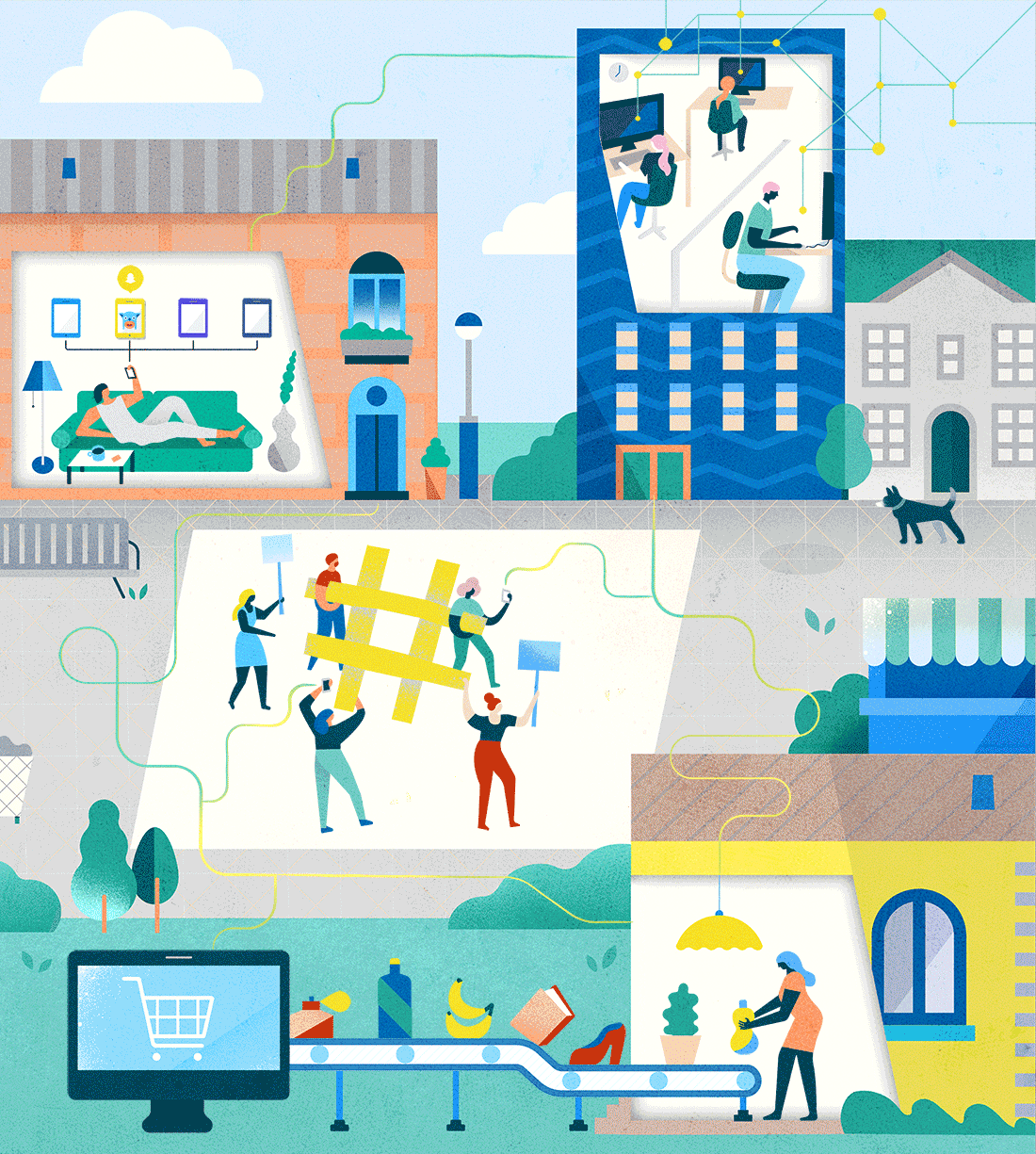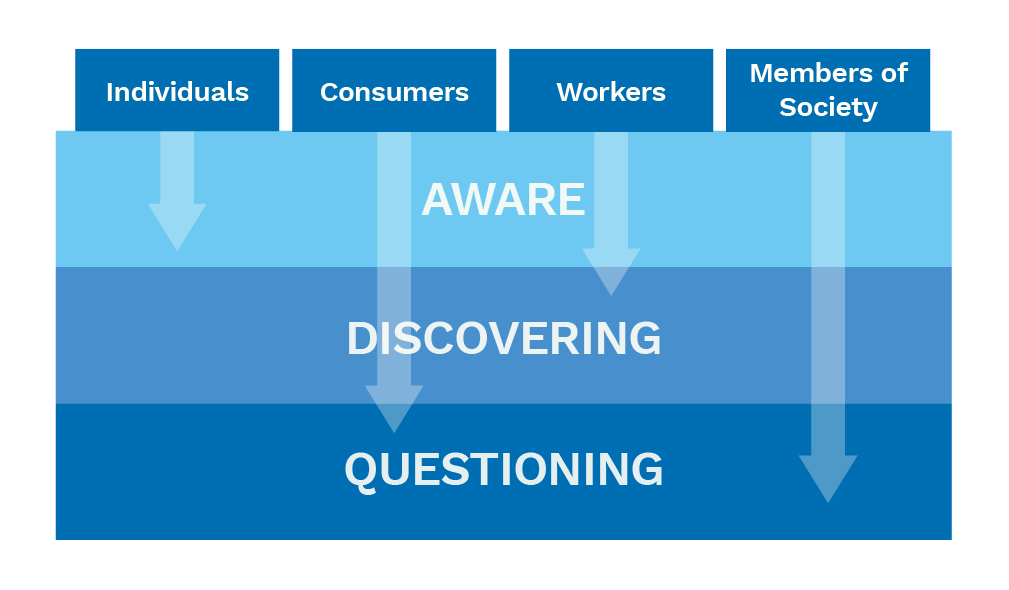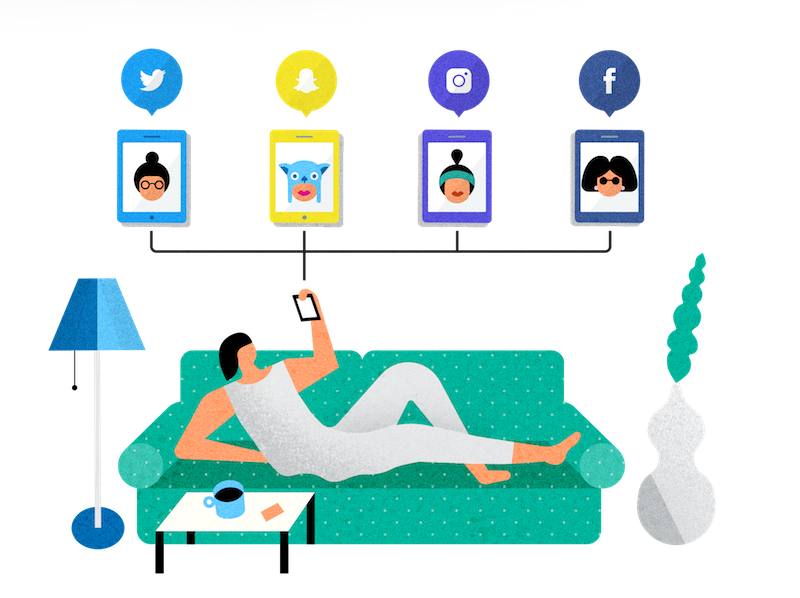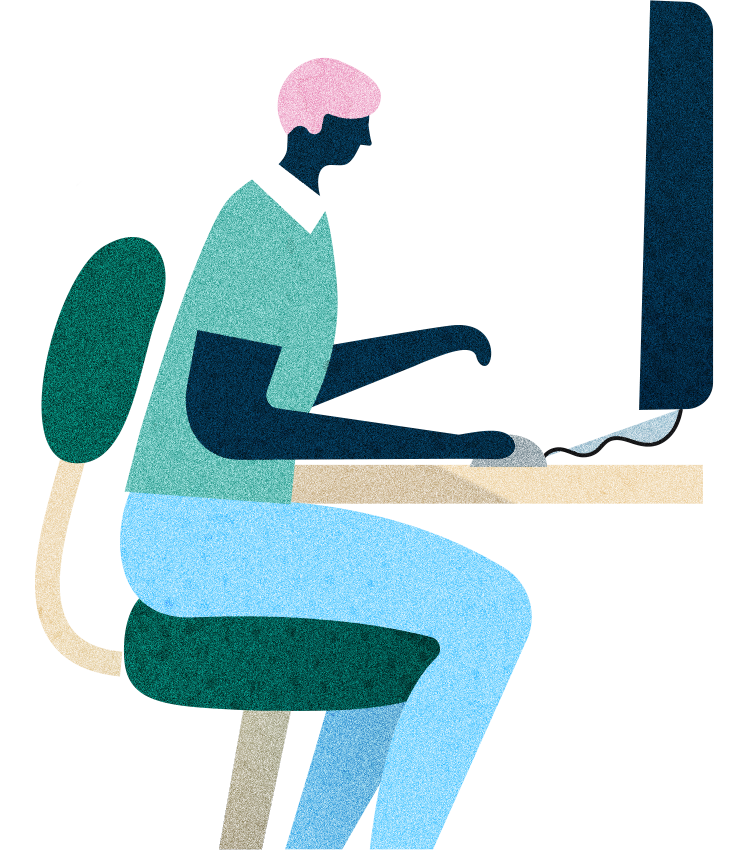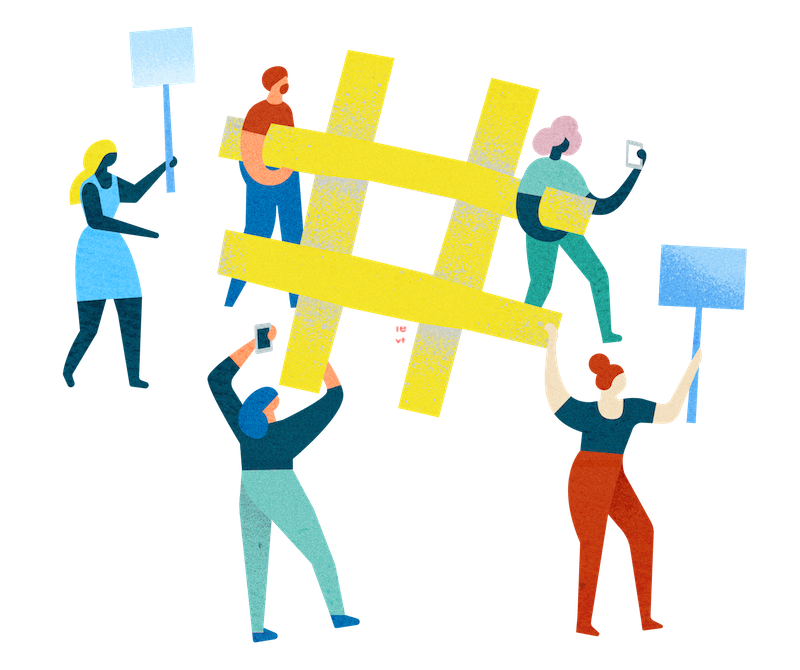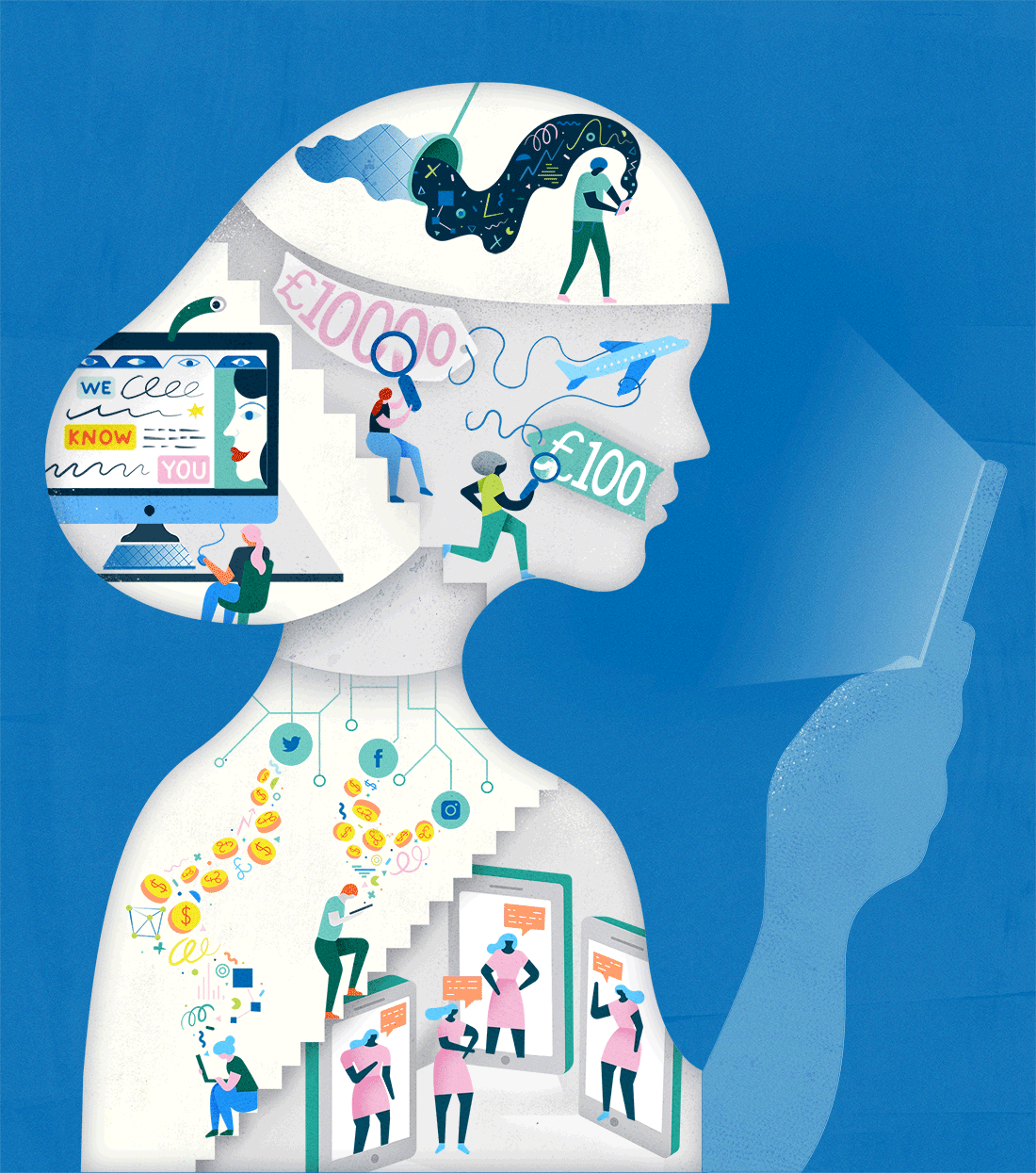Doteveryone’s digital understanding model shows how people can harness technologies by building awareness of how they affect them in the different aspects of their lives.
But our research has also revealed five specific areas of the way digital technologies affect people that are particularly poorly understood. This part of the report highlights where these blindspots lie. Download the full report for a list of some steps which people can take to address them.
Although we would encourage individuals to develop their awareness of these understanding gaps, we would stress that responsibility lies primarily with industry to make their products more understandable and with government to ensure there are standards which require companies to do so.
1. How adverts target you

“When cold callers phone to sell you random products you put the phone down. You can’t do that online.”
Digital advertising is worth £11.4bn in the UK – more than half of the total advertising market. The internet has allowed advertisers to use the information which people leave behind when they use the internet to tailor their messages to individuals in ways that were never before possible. It’s estimated that 79% of digital advertising is programmed by software designed to do this. Doteveryone’s research has found that people find targeted advertising disconcerting and it makes them feel uneasy – 47% say they feel negatively about receiving it. People also have a very limited understanding about the way it operates.
We found almost half are unaware the information they share on websites or social media can influence how adverts are targeted, almost a third don’t realise that the things they’ve bought before can affect what ads they see and a fifth haven’t noticed that they’ve received advertising based on what they’ve previously viewed or searched for.
If people are able to better understand how targeted advertising reaches them, they can take steps to help control the kinds of advertising they receive.
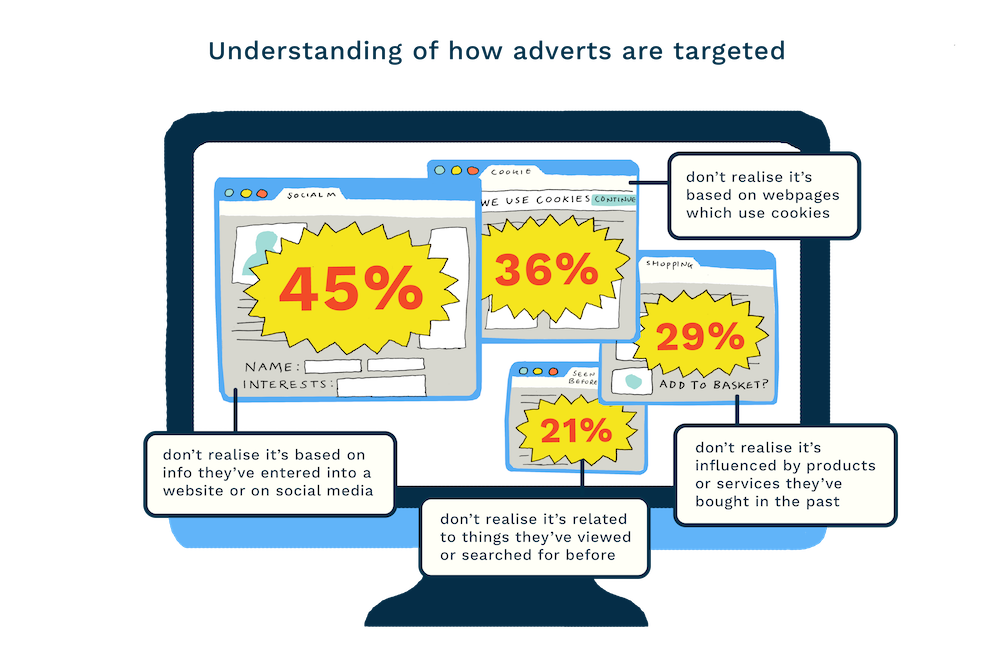
2. How your personal information is collected

“It feels like I am being spied on – how could I feel safe using the internet when someone is constantly watching me and tracking what I am doing online?”
When using the internet, people leave behind information about themselves. Sometimes they do this actively, for example by entering their name or email address on a form and sometimes passively, for example through the information about their internet connection shared by their computer.
Doteveryone’s research has found that people care deeply about the use of their personal information – 95% say it’s important to know their data is secure, 94% say it’s important to know how their data is used. And they would like more control over it — 91% say it’s important to be able to choose how much data they share with companies, but half (51%) can’t currently find out that information. We found that people have little understanding of how companies collect data about them.

While around a third don’t realise that information about previous searches or purchases is collected, two-thirds are unaware that information about their internet connection is gathered and over 80% don’t realise that information which other people share about them is collected.
The ways that data is collected are complex and individuals can’t always control how much information about them is gathered.
We found 42% would like to do more to change their privacy settings but don’t know how and 25% feel there’s no point in doing so as companies will get round them anyway. However better understanding of data collection can help people make more informed choices and take some steps to make their data more secure.
3. How prices can vary

“I think it’s just a lot easier nowadays to sit on your computer or on your phone and just literally go on to any website that you want, rather than going in to Leeds city centre and having to walk around for ages – you’re cutting out the effort really.”
The internet has made shopping easy and convenient. Almost one fifth of UK retail spending is online – £1,230.2 million each week. But it can also make it hard to know how much things should cost. Some retailers can use information people leave behind on the internet to try to predict how much people are prepared to pay for something, and charge people different prices accordingly. Although there has been some reporting of how a person’s browsing history can push up the cost of products such as flights online, Doteveryone found that there was very little awareness of this practice, known as dynamic or discriminatory pricing.
Almost half (47%) have not noticed at all that prices vary when they search for them online. And only 21% are aware that data may be collected so that companies can determine the price they are charged for a product or service.
Of those who have noticed prices increasing when they search for products online, around half (47%) believe the company is trying to encourage them to buy a product, 43% believe it’s because the company thinks they are willing to pay more, 33% believe its due to a change in availability and 32% believe it’s due to the number of people searching for a product at any particular time.
With greater understanding of how this works, people may be able to take some simple steps to reduce their exposure to this kind of targeting.
4. Where your news comes from

“If you have the news set on your phone, the more articles you read of a certain type they all just come back at you… it polarises opinion even more.”
People love the internet for the access to information it offers. 67% of people regularly use the internet to search for and read information, including the news. 68% see the opportunity to learn and try new things as one of most positive effects of the internet. But the internet has also allowed misinformation to spread and can make it hard for people to know what to trust. Our research found there are high levels of distrust of news and content online. Only a third (31%) think most news websites and apps are trustworthy and accurate and 41% say some news websites and apps can’t be fully trusted but read them anyway.
Personalised search results and social media feeds can also affect what information individuals see – creating ‘filter bubbles’ where people only see information which comes from a particular standpoint. Two thirds of people (62%) are not aware that the news and information they see online can depend on the people they are connected to on social media. 42% say they stick to news websites and apps which appear to share their own values and beliefs while 30% say they make an effort to view websites with differing political standpoints.
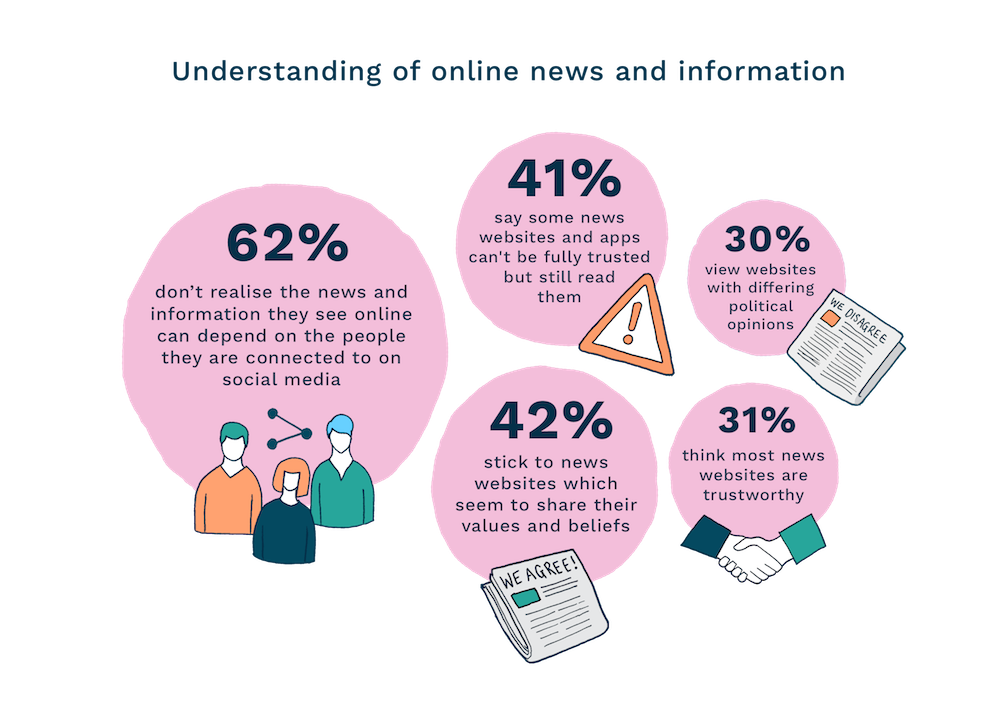
As the internet is a key source of information for public debate, it’s important people have the understanding to distinguish trustworthy content from misinformation.
5. How products and services are paid for

“Collecting data…it’s just how they make money. I expect it – you shouldn’t just accept it but you do. It’s not well known how to get away with it – how to turn it off.”
How tech companies make money is one of the least well understood areas of how the internet works. Almost a quarter (24%) of the population say they don’t know how online services are funded. Many services are free to use which can mask the operating model that lies behind them. Often they are funded through complex combinations of digital advertising, data selling, endorsements and paid content so it’s not always clear where companies are making their money.
While two-thirds (64%) recognise advertising as a source of revenue for search and social media (62%), only 8% are aware that paid content can help fund social media and only 25% that endorsements can help fund blogs and vlogs.
In particular, awareness of how services make money from data is very low with more than two-thirds (70%) unaware this applies to free-to-use apps, 62% to social media and 57% to search engines.
When people clearly feel their personal information is important to them, it is only right they know that companies are able to get financial benefit from it. They should also be aware of the role endorsements and paid content can play in framing the content they see and read online.
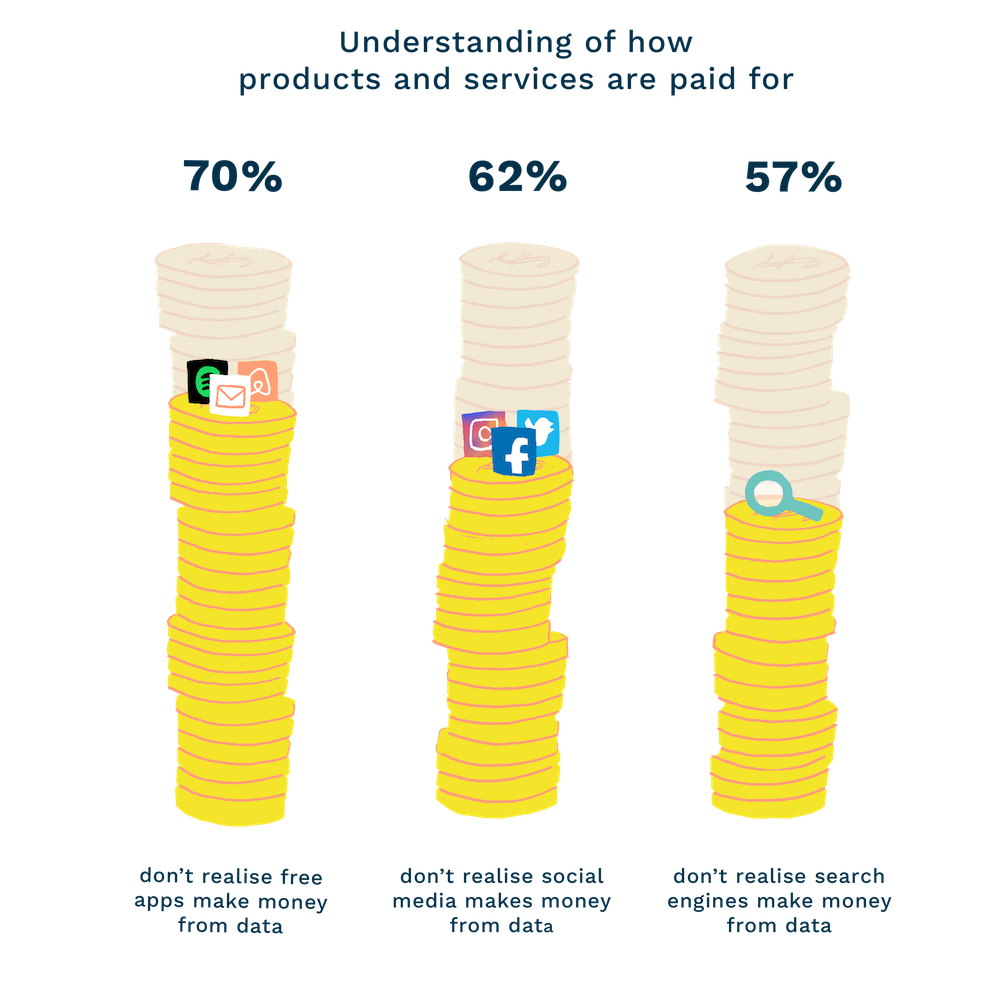
Hide
